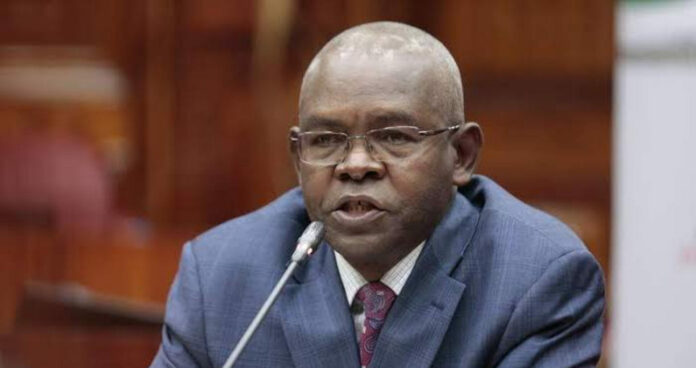The Central Bank of Kenya (CBK) loan rate has hit a record high sparking fears of mass loan defaults.
On Tuesday, the Monetary Policy Committee of the CBK hiked the central bank rate by a whopping 200 basis points to 12.5 per cent. This saw the loan rate hit a massive 11-year high.
The raising of the CBK loan rate is being widely seen as the CBK’s attempt to stop the free-fall of the local currency that has crashed consistently since the inauguration of President William Ruto in September 2023.
Notably, the shilling has fallen from around 119 as at August 2022 to the curry lows of 153 and commercially between 158 and 160 against the US dollar.
In an interview with the media prior to the raising if the loan rate, Thugge said that the shilling has depreciated more than is required to find its fair value.
CS Njuguna Ndungu: It is not bad for Kenya Shilling to depreciate
“The exchange rate has depreciated more than is required to establish an equilibrium and market determined stable and competitive rate. Where we are now is a situation where there is a lot of uncertainty and foreign investors are hesitant about coming in because they are not sure on where the exchange rate will settle,” said Thugge.
However, the CBK loan rate is expected to have a ripple effect on consumer loans with banks expecting record non-performing loans. In the financial results fir the period ended September 30, 2023, top banks including Equity Bank and KCB Group recorded an increase in non-performing loans, and an increase in provisioning for bad loans.
For instance, Equity Bank Kenya’s (Equity Group’s local subsidiary) profit after tax fell by 20 per cent to Sh. 19.3 billion. This was the first time the local subsidiary has recorded a drop in profit in seven years. This profit decline was attributed to high non-performing loans that hit an industry average of 15.8 per cent.
The local subsidiary had 15.8 per cent non performing loans while the Group as a whole had 12.2 per cent non-performing loans.
At the same time, KCB’s gross non-performing loans increased from Sh. 149 billion in quarter three of 2022 to Sh. 187 billion in the third quarter of the current financial year.
Prior to the rate hike, local banks had advised the MPC to keep the rate unchanged at 10.5 per cent. This had been the rate since June 26.
However, the MPC opted for an increase citing the exchange rate and cost of imports. The MPC claimed that the 6.8 per cent overall inflation that was recorded in the previous month of November, and the exchange rate depreciation had contributed to three percentage points.
“The MPC noted that exchange rate depreciation continues to exert upward pressure on domestic prices thereby increasing the cost of living and reducing the purchasing power,” the CBK’s MPC stated.
“The MPC therefore concluded that there is a need to adjust the monetary policy stance to address the pressure on the exchange rate and mitigate second round effects including from global prices.”








